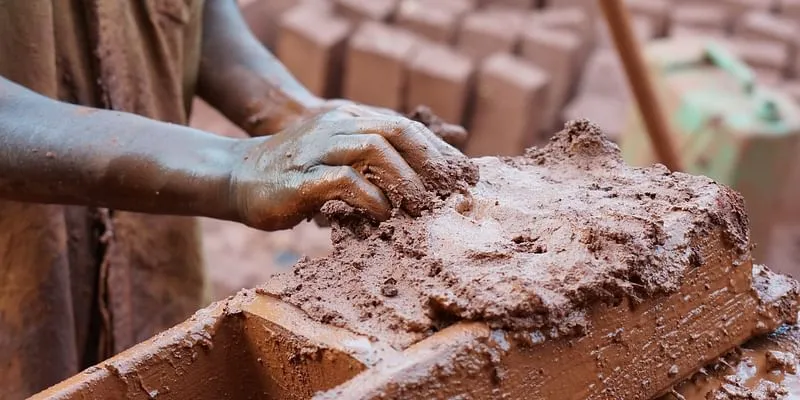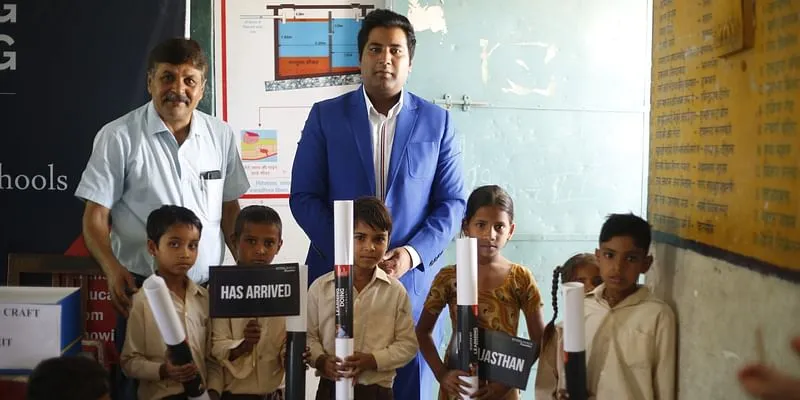From creating watersheds for sustainable development to enabling learning for children – the top Social Stories of this week
This week, SocialStory witnessed the stories of people and organisations, who with grit and determination, made something better out of their lives to help society.
Lata Chaudhry (83) lost all memories of her life except her childhood when she was diagnosed with Alzheimer’s. While this was difficult to cope with, she was able to remember the skills she had developed as a child.
On the other hand, Mercy Mission, a coalition of NGOs in Bengaluru, came together to address the major problems of the pandemic — from providing food and oxygen cylinders to providing dignified deaths.
Here are the top Social Stories of the week:
How this 83-year-old found focus, inspiration in tribal art after Alzheimer's diagnosis

Daughter of a noted Journalist Rambau Tatnis, Mumbai-based Lata Chaudhry had a passion for painting — a hobby she picked up during her childhood.
Four years ago, Lata was diagnosed with Alzheimer’s, impacting her short-term memory. The pandemic, too, has taken its toll as she fails to understand why the streets are empty and how the life she knows doesn’t exist anymore. The only memories she has are those of her childhood.
But thanks to the advice of her doctor, with a few painting supplies, she found her inspiration in tribal painting — a long-forgotten art form she pursued in her younger days.
How I went from working in a brick kiln to getting a Master's degree

My name is Khemlal Khaterji. I am 28-years-old, and I come from a small village in Chhattisgarh. I was born in one of the brick kilns where my parents worked. They were working in Meerut at that time, and were due to go back to Chhattisgarh, but I arrived before they could go home.
From very early in my life, I can remember labour contractors coming and taking my parents to different parts of India to work in brick kilns, and I would go with them. They could not leave me behind as I was very young, and I did not want to be without them.
At the age of 13, I was rescued by a local NGO. It has been a few years now, and I am in a better place. I recently completed my education, and I now have a Master’s degree in Social Work from Kalinga University.
Read on about Khemlal Khaterji’s story.
How this educator is enabling learning for young children and helping artisans

Kits distributed to the primary school children.
Ritesh Rawal — a Delhi-based passionate educator — started Dudes & Dolls World — a cosmic school. Founded in 2012, the school provides young children with developmental inputs and unique methods to improve and scale their thinking capacities.
After seeing the success of Dudes & Dolls, he founded Adhyay School — a K-12 school — which takes education to a different level through “manifestism.” While most school curricula focus on education that most often leads to careers in Medicine and Engineering, Adhyay focuses on familiarising the children with all kinds of careers and subjects that would be relevant to them.
Mercy Mission is aiding those most impacted by the pandemic

The COVID care facility set up by Mercy Mission and HBS Hospital at St Joseph's, Bangalore
Amidst the COVID-19 pandemic, numerous NGOs sprang into action to distribute care packages for those in distress.
But a group of people based in Bengaluru, under the title Mercy Mission, came together to represent different NGOs and organisations so they could mobilise all the support and reach out to a larger number of people and areas within the city.
Mercy Mission started as a coalition of about four to five NGOs in the beginning, but it is now a large group with over 25 NGOs, including The Lifeline Foundation, The United Foundation (TUF), Project Smile, HBS Hospital, and HWA Charitable Foundation, among others.
WOTR is addressing rural poverty with watershed development

Bhojdari (before and after)
Crispino Lobo, Co-founder and Managing Trustee, Watershed Organisation Trust (WOTR), says that in many parts, especially those not prone to droughts, the only way to increase the water supplements is to “catch every drop of rain that falls on the geographies.”
This can be done through watersheds — areas that drain into a specific water body. The rainwater collected in these watersheds feeds water to multiple rivulets of streams, which ultimately joins a river. When these water bodies are located in areas that can flourish with agriculture, it can create a significant impact on the livelihoods around the area.
This thought led Father Hermann Bacher to launch the Indo-German Watershed Management Programme in India in 1989. He wanted to reduce poverty and build a sustainable watershed development programme. Joining him in this mission was Crispino Lobo, who then helped him with the Watershed Organisation Trust (WOTR) in 1993.
Edited by Suman Singh


![[Survivor Series] If anyone says that you can have a lot for nothing in return, it will cost you a lot](https://images.yourstory.com/cs/5/803961002d6d11e9aa979329348d4c3e/Use1-1600952147045.jpg?fm=png&auto=format&h=100&w=100&crop=entropy&fit=crop)
![[COVID Warriors] This non-profit is providing free medicines amid the brutal pandemic](https://images.yourstory.com/cs/5/98c65090592f11ea9f62339ce853ca75/WhatsAppImage2021-05-03at12-1622044219379.jpeg?fm=png&auto=format&h=100&w=100&crop=entropy&fit=crop)




